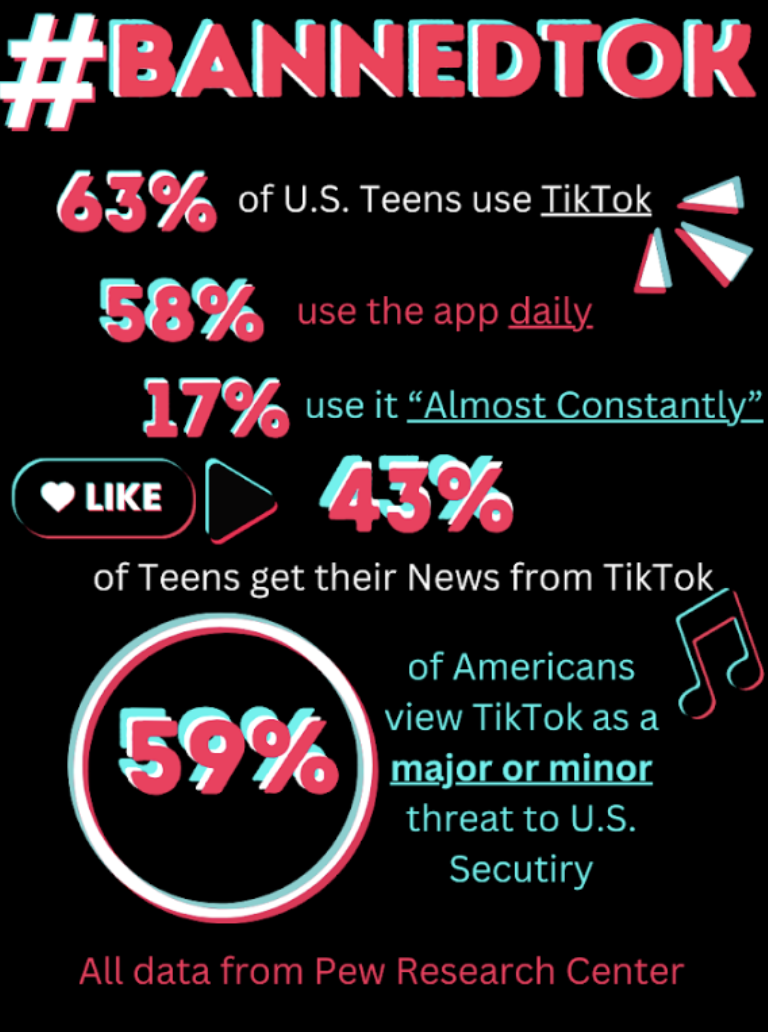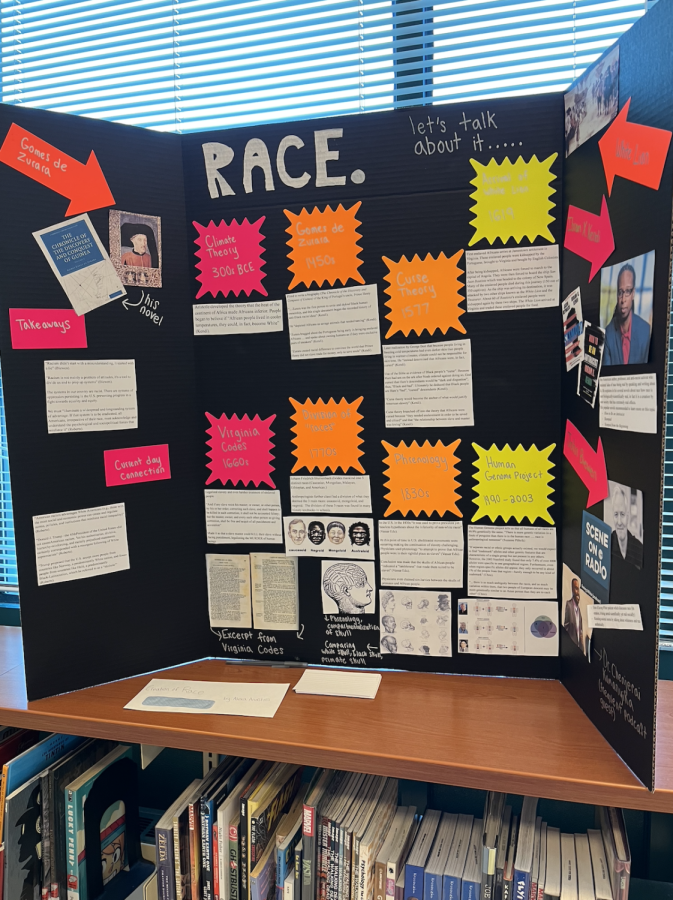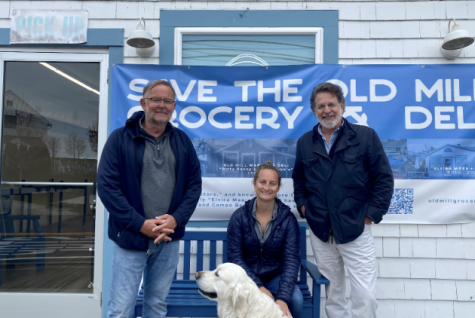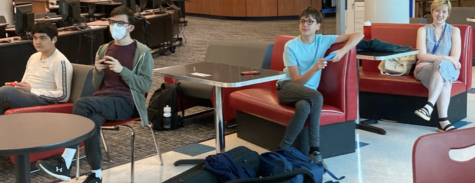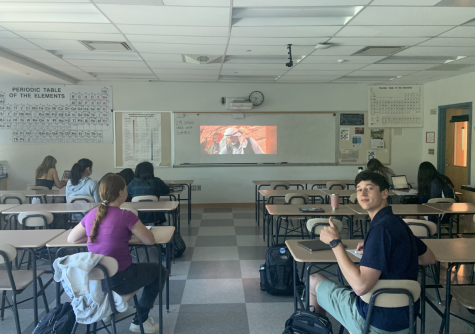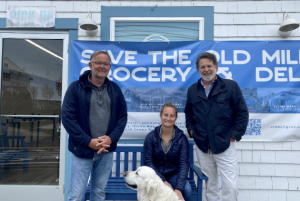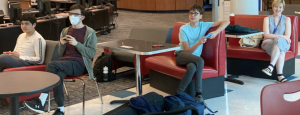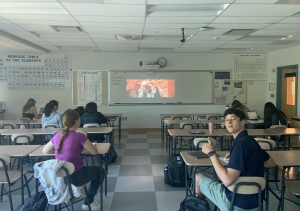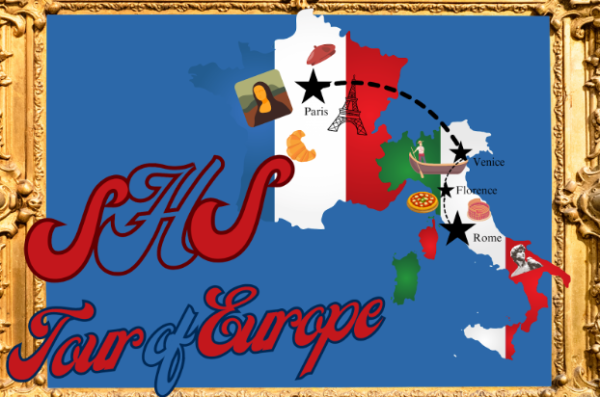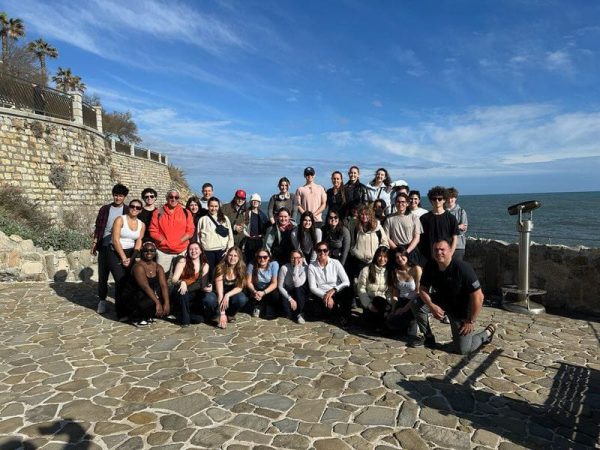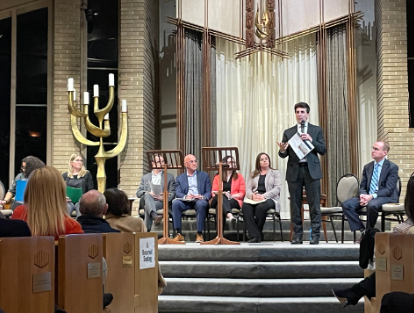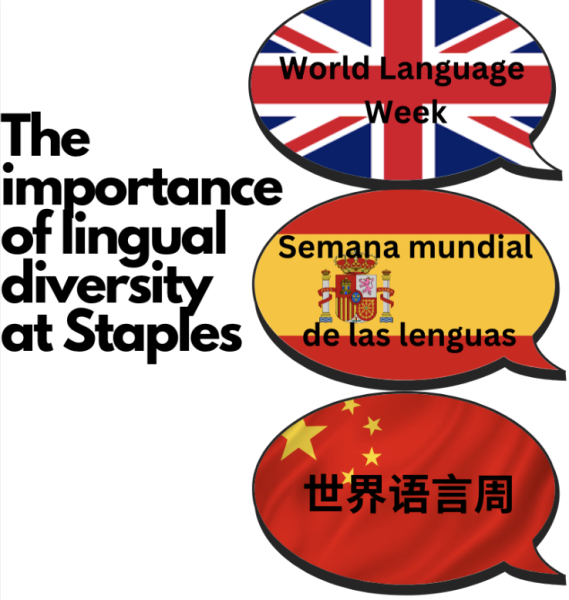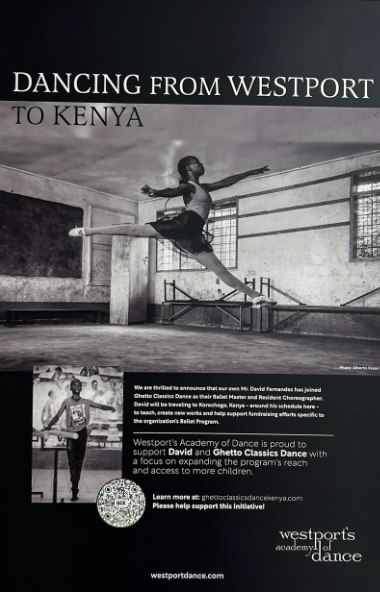‘African American, Black, Latino, and Puerto Rican Studies’ class concludes pilot year
Alexa Anastasi ’22 showcased the history of race through means of an eye-catching poster.
Among the plethora of books and burnt-out high schoolers that inhabited the library on May 11, students enrolled in African American, Black, Latino, and Puerto Rican Studies proudly presented their final project — an interactive museum exhibit. Featured projects included posters, websites and essays focused on topics relating to the resistance, rebellion, oppression and celebration of African American, Black, Latino and Puerto Rican history.
“I chose the creation of race as the subject of my project because I found it to be the biggest misconception I had coming into this course,” Alexa Anastasi ’22 said. “Previous to [taking] this course, I thought slavery occurred on the basis of race and that race is scientifically a real fact. However, in this class I learned that race was actually created as a social construct after slavery happened as justification.”
Although students were given complete autonomy to decide the focus of their final project, Rian Herrmann ’23 also chose to investigate previously taught history.
“I decided to choose going deeper into the founding fathers or a couple of ‘American heroes,’” Herrmann said. “Throughout the course, I’ve realized a lot of things I’ve been taught in other classes aren’t necessarily true, or the complete truth. Doing this project allowed me to do my own research and dive beyond what I’ve been taught in the past about these widely recognized people in power.”
Social studies teachers Cathy Schager and Rebecca Marsick taught the 16 students that enrolled in the class’s first year. Overall, both teachers would consider the curriculum and execution a success.
“[The curriculum] is rooted in telling the histories of Black/African/Latino/Puerto Rican people whose voices have been left out of traditional history curriculum,” Marsick said. “In addition to learning about these people and events, it also delves into ideologues and structures that have been present in the United States since its founding that have impacted people of color. Finally, and probably most importantly, it is a celebration of the resilience of these communities who have been marginalized and oppressed for centuries and their strength in moving forward.”
Although the class focuses on history, current events are an important field of discussion. Students are given opportunities to focus on topics of personal interest.
“The curriculum seemed to be very flexible,” Herrmann said. “We talked about [history] and how they affected the current events we were seeing on the news, but we also dove deeply into the untold history of communities that I personally had never been taught about. The structure was very student-driven, discussions were a large part of our class and it allowed all of us to express and learn from each other in a very safe and friendly environment.”
Throughout the course, I’ve realized a lot of things I’ve been taught in other classes aren’t necessarily true, or the complete truth.
— Rian Herrmann ’23
Matt Seo ’22, a student enrolled in the class, sees merit in the course, as it provided him with a new historical interpretation.
“I thought the class was very informative about [viewpoints] that we might have not learned in the past,” Seo said. “It was very interesting to hear different ideas about history that we’ve been taught, and falsely taught in some ways, due to misinformation and lack of perspective.”
Overall, many students believe that African American, Black, Latino and Puerto Rican Studies was a long overdue course offering at Staples. Current students now feel more informed and well-equipped to combat misconceptions about history.
“I hope to use the knowledge I gained from this course in my life to spread it to the people around me and educate others […] and to spot and acknowledge my subconscious racism as a white individual,” Anastasi said. “I will forever keep the knowledge I have learned from this class as it completely shifted my understanding of our world history. Of course the learning never ends, but now I feel I have the knowledge I need to be a well-rounded, active U.S. citizen.”
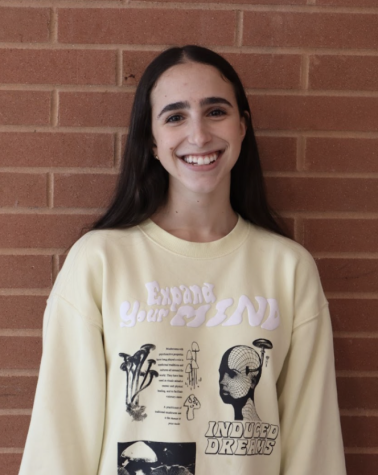
Web Managing Editor Toby Goldfarb ’23 was driven to join Inklings because of her love of learning, whether it’s writing for a new section in Inklings...

